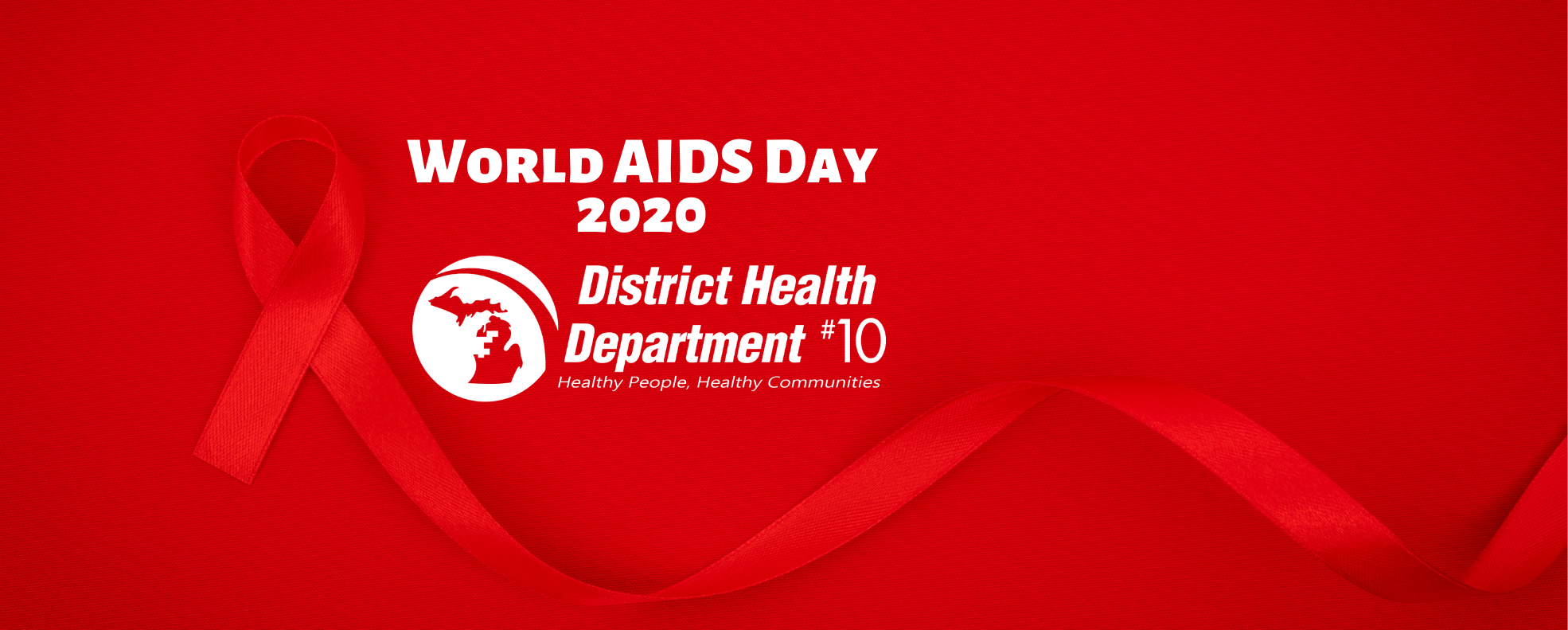December 1 is World AIDS Day, a day for the world to unite and continue the fight against HIV and AIDS. It is a time to inform the public of HIV services available to them, show support for those living with HIV or AIDS, and to remember those who have died. The only way to know you have HIV is to get tested. Call your local DHD#10 office today to schedule an appointment to be tested for FREE.
FACTS:
What is HIV?
The Human Immunodeficiency Virus (HIV) damages cells in the immune system that help us by fighting off infection and disease. As the virus gradually destroys these cells, the immune system becomes unable to protect against illness.
What is AIDS?
Acquired Immunodeficiency Syndrome (AIDS) is the most severe phase of HIV infection. A positive HIV test result alone does not mean that a person has AIDS. A diagnosis of AIDS is made on the basis of the person’s symptoms and results of lab tests.
What is World AIDS Day?
World AIDS Day is held on December 1st each year to unite everyone in the fight against HIV, show their support for people living with HIV and to commemorate people who have died.
What should I do on World AIDS Day?
Wearing a red ribbon is a simply way to show support to the millions of people living with HIV. Visit http://www.worldaidsday.org/ to find out about events in your area.
How many people are living with HIV in the United States?
According to the Centers for Disease Control and Prevention, 1.2 million people in the United States were living with HIV in 2016. CDC estimates that approximately 50,000 people in the United States are newly infected with HIV each year.
How is HIV transmitted?
Getting HIV infected blood, semen or vaginal fluids into your body in any way can put you at risk. This includes having unprotected anal, oral or vaginal sex and sharing needles. An infected woman can spread the virus to her baby during pregnancy, delivery or through breast milk. However, with proper treatment the chance of passing the virus from the mother to the baby is greatly reduced.
You cannot get the virus from:
- Casual contact with people who have HIV
- Tears or saliva
- Handling objects that have been touched by someone who has HIV
- Donating blood
- Mosquito bites
What are the symptoms of HIV?
- Constant tiredness
- Persistent fever
- Swollen glands
- A dry, nagging cough and/or shortness of breath
- Continued loss of appetite
- A large weight loss without dieting
- Diarrhea that won’t go away
- Sores or rashes that won’t go away
- Chronic yeast infections
- Night sweats
- Changes in memory or vision
- Unusual or persistent infections
How do I know if I have HIV?
The only way to know if you have HIV is to get tested. Call your local District Health Department #10 office today to schedule an appointment.
Can someone under 18 take the test without their parents’ consent?
Yes, a minor has the right to take the test for HIV without their parents’ knowledge or consent.
What is the difference between anonymous and confidential HIV testing?
Anonymous: Your name is not used and is not on test results. You will be given a code number to receive results.
Confidential: Your name will be used on test results.
How is HIV treated?
There are medications that can slow the rate at which HIV weakens the immune system. These treatments have prolonged the lives of individuals living with HIV and improved their quality of life.
Quick Links
DHD#10 – Sexual Health
Centers for Disease Control – HIV/AIDS Information
Michigan Department of Health and Human Services – HIV/AIDS Prevention


